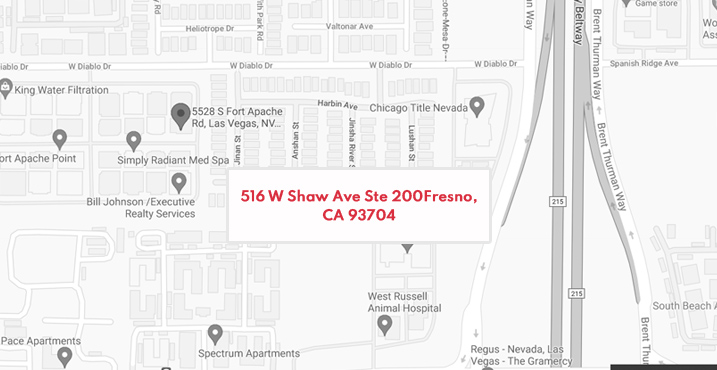What is Considered Domestic Violence in Fresno County, California?
Contrary to some misconceptions, domestic violence need not result from acts of physical violence. Although physical abuse, such as kicking, punching, slapping, choking, and other acts, certainly counts as domestic violence, California has broader definitions for the criminal offense.
Domestic abuse is a pattern of unwanted and uncalled-for behavior where one partner or household member attempts to maintain control over others through the use of violence and threats.
The many forms of domestic violence recognized by California law include the following:
- Destructive acts, such as destroying the victim’s property, vandalizing property, or harming or killing household pets
- Emotional abuse, such as gaslighting, mind games, social isolation, threats, and demoralizing the domestic violence victim
- Financial abuse, which can include controlling a victim’s basic needs and economic status, prohibiting employment, and withholding money
- Forced or coerced sexual acts, including but not limited to marital rape and other sexual violence
- Homophobic or transphobic acts
- Immigration abuse, which can include threatening the prospect of deportation in instances of blackmail
- Physical violence and child abuse
- Spiritual abuse, which can include attacking the victim’s religious beliefs or purposely misquoting scripture to cause harm
- Stalking, harassing phone calls, social abuse, and intimidation may also be classified as domestic violence
- Verbal abuse, including excessive name-calling and put-downs
To meet the criteria of a domestic violence crime, the perpetrator and the victim must either be married, living together, or have a child in common.
What is a Domestic Violence Restraining Order?
California courts can issue several types of protective restraining orders, including civil harassment, workplace violence, elder abuse, and domestic violence restraining orders.
A judge issues a domestic violence restraining order to help protect a victim of abuse or threats of abuse from an individual with whom they have a close relationship, such as a spouse, family member, or co-parent.
A domestic violence restraining order can require that the abuser not own a firearm, have no contact with you or your children, move out of a shared household, stay away from your work or your children’s schools, not make any changes to insurance policies, release specific property, pay child support and alimony, and not incur significant expenses that may affect the other person’s financial status.
Once the order is issued, it goes into a statewide system that all law enforcement officers have access to. The restraining order can work anywhere in the United States. If you move outside of California, contact local police departments to let them know about the existence of a domestic violence restraining order.
There are certain limitations to domestic violence protective orders. For example, they cannot end your marriage or domestic partnership. A restraining order does not equal a divorce.
Are There Different Types of Restraining Orders?
There are a few different types of domestic violence protective orders available to victims in Fresno, California.
An emergency protective order (EPO) is typically issued when someone is believed to be in immediate danger of domestic violence. It can be ordered immediately by a judge on call and is valid for one week. After seven days, a temporary or permanent restraining order may need to be enforced to protect the victim.
Temporary restraining orders (TROs) usually last two to three weeks. They are often issued when an emergency protective order expires or when an individual is the victim of ongoing harassment. Prior to the expiration of a temporary restraining order, a court hearing will usually be held to discuss whether a permanent restraining order is necessary.
Permanent restraining orders (PRO) are issued when victims applying for protection require the enforcement of legal protection to continue over a more extended period. A judge will hear from the individual applying for the domestic violence restraining order and listen to the defense of the person being restrained. The judge will determine whether a permanent restraining order is necessary. Most permanent restraining orders last up to three years but can be extended if required.
How to File for a Domestic Violence Restraining Order?
There are several ways to apply for an order of protection, including contacting a state or District Attorney, informing your local police department, or inquiring with a county clerk in your or the abuser’s home county.
The legal process of filing for a domestic violence restraining order in Fresno is as follows:
- Fill out the required paperwork and file the forms with the appropriate courts
- A judge will review your case and typically issue a temporary restraining order
- A court date will be issued, and both parties will be notified
- The accused abuser will be served their restraining order
- After gathering proof of harassment, abuse, and threatening behavior, the victim then attends a court hearing before a judge. At the courtroom hearing, the judge decides whether it is prudent to cancel the temporary restraining order, continue it, or issue a permanent restraining order
In your case, there is no guarantee that judges will issue either temporary or permanent restraining orders. For better chances of successfully obtaining protective orders, it is highly recommended that you seek the professional legal representation of experienced attorneys. Please contact our law firm for legal assistance.
What Proof is Required to Request a Protective Order?
California courts will usually issue restraining orders when the petitioners can show reasonable evidence of current or past acts of abuse. As long as the demonstrated abuse, which can be presented either in verbal or written testimony, is satisfactory to the court, a restraining order may be called for. Additional evidence that can be used to demonstrate abuse may include eyewitness testimonies, photographs of destroyed property or physical injuries, video evidence, and legal documents such as police reports.
In most domestic violence cases, a judge must see photographs, electronic messages, or physical evidence that can support your claims of abuse. While physical violence is reasonably easy to prove, emotional abuse and other forms of abuse can be more challenging to establish.
Providing adequate proof is one of the chief reasons why you need the legal counsel of a Fresno family attorney. Please contact our law firm to discuss your case in your consultation today.
Schedule Your Initial Consultation with Our Compassionate Legal Team Today
There are several potential consequences for violations of restraining orders, such as misdemeanor charges and felony charges. These criminal charges could result in jail time, costly fines, and more. Under California law, violating restraining orders is considered a ‘wobbler’ offense, meaning that the crime could be charged as a misdemeanor or felony, depending on the case’s unique circumstances.
When seeking a domestic violence restraining order, it is often recommended that you first hire the legal representation of experienced family law attorneys. Our law office has extensive experience helping clients get the kind of protection they need in domestic violence situations.
To learn more about how we can assist you, please contact our Fresno law firm to schedule a case review today. Call us at 559-282-8924.









